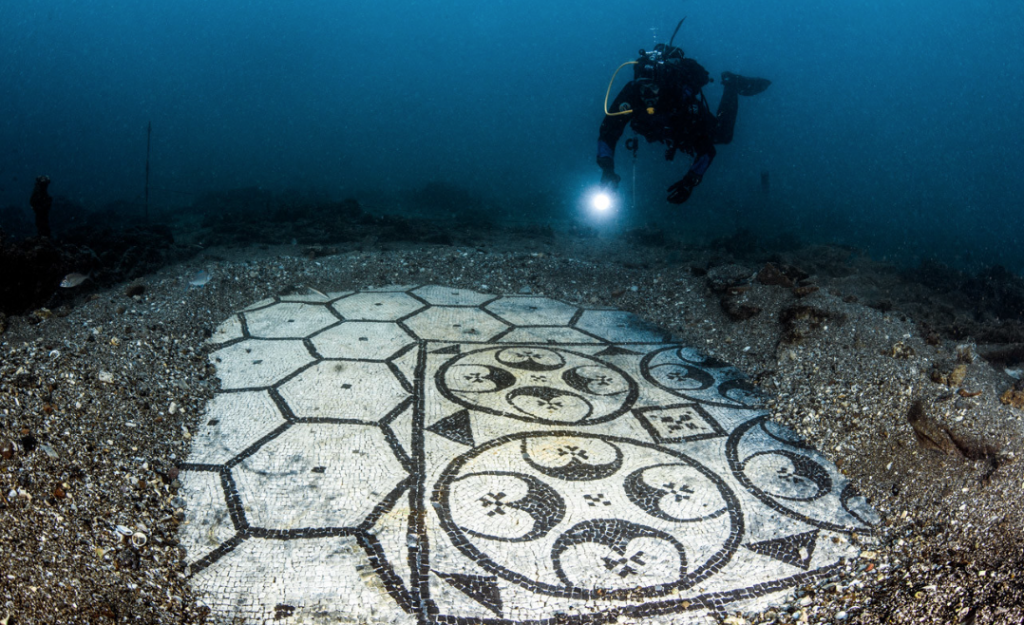
A diver looks at one of the Roman mosaic tile floors, a remnant of a once-vibrant city underwater. Italian officials will now be able to track conditions via AI-controlled monitors. (Source: Archeological Marine Park of Baiae)
Archeologists Can Monitor Underwater Roman Ruins with Customized AI System
Keeping track of a popular 435-acre underwater archeological park near Rome has proven a challenge for scientists monitoring it, until now, according to a story on technologyreview.com. Barbara Davidde, Italy’s national superintendent for underwater cultural heritage, said the country needed to track activity in the ancient city of Baiae under the Mediterranean Sea, a very challenging environment.
A collaboration between Sapienza University and the director of Sapienza’s spinoff WSense, a startup specializing in underwater monitoring and communication systems, resulted in a tool that adapts to changing underwater conditions.
“Petrioli’s team has developed a network of acoustic modems and underwater wireless sensors capable of gathering environmental data and transmitting it to land in real time. ‘We can now monitor the site remotely and at any time,’ says Davidde.”
AI algorithms constantly change the network protocol to adapt to sea conditions and enable signals to go up to two kilometers. The system transmits environmental data collected by sensors anchored to the seafloor, including images and information on water quality, pressure, and temperature; metal, chemical, and biological elements; and noise, currents, waves and tides.
The systems are also being adapted to monitor climate changes at other sites in Italy and to monitor underwater volcanoes.
Italy’s National Agency for New Technologies, Energy, and Sustainable Economic Development uses WSense networks to study how algae, aquatic invertebrate animals, and corals adapt to climate change in the bay of Santa Teresa, for example.
The AI-driven system is also being used in Norway to monitor water quality and fish health in salmon farms.
read more at technologyreview.com







Leave A Comment